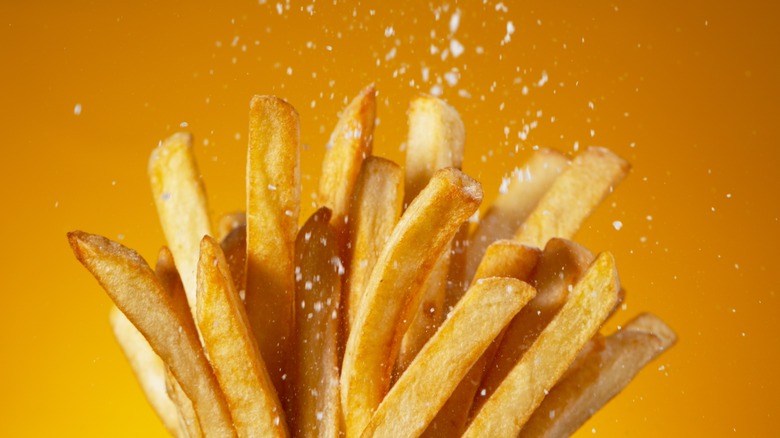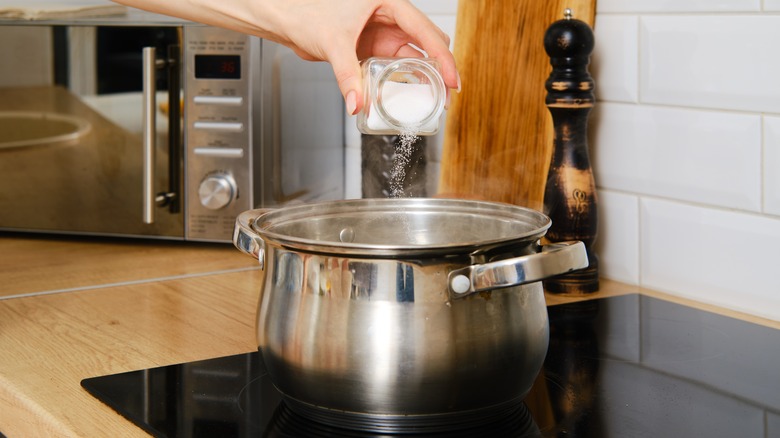Why You Should Salt Potatoes When They're Still Hot
Where would we be without potatoes? Not eating as well, that's for sure. These starchy, reliable tubers bring so much deliciousness to the table — with such regularity — that it's hard not to be in awe of them. Thanks to the humble potato, we get to eat crispy French fries, creamy mashed potatoes, indulgent potatoes au gratin, and hearty potato soup, among many others (via The Modern Proper).
Many of the potato recipes we make regularly are pretty foolproof, but if there's one thing it pays to be mindful of when cooking your spuds — it's seasoning them well. Potatoes' sky-high starch content can lead them to taste bland if they're not adequately salted, notes Bon Appétit; for that reason, it's key to use a fairly heavy hand with the white seasoning and to know precisely when you should add it. The timing, although a small detail, could make or break the flavor of your next potato-based dish.
Hot potatoes absorb salt and taste well-seasoned all the way through
It's recommended to salt the water before cooking your potatoes, especially for your next dish that calls for the tender vegetable (via Tablespoon). Eating Well adds that extremely salty water boils at a hotter temperature, more thoroughly cooking the potatoes' starch and preventing them from becoming gluey and instead, becoming more creamy.
Seasoning the potatoes while they're hot is also imperative to get the salt into the whole potato, "whether they're mashed, roasted, or baked" (per Insider). Since the starch is cooked evenly, the vegetable's flavor can really shine because of the absorbed seasoning, notes Cooking Light. As Palak Patel, a chef at the Institute of Culinary Education, told Insider, "The heat helps carry the salt to the center of the potato. It's not ideal to salt cold potatoes." The chef vouches that even fries fresh from the fryer can be salted again before they cool down.
With this tip in mind and your salt shaker full, you shouldn't have to suffer through a bland potato again.

